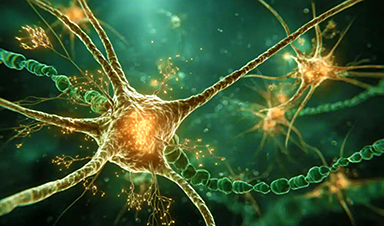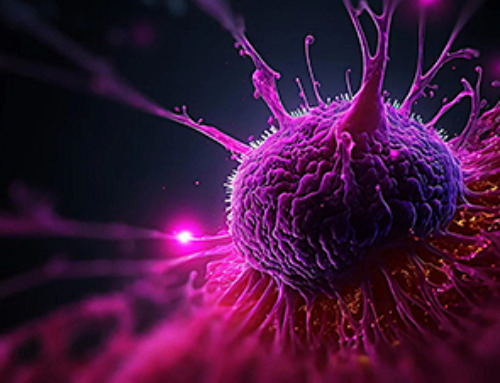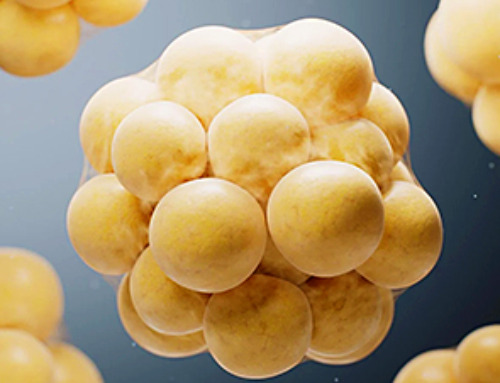Scientists have identified a natural compound combination that reverses aging-related brain cell decline and removes harmful Alzheimer’s-linked proteins. The treatment, combining nicotinamide (vitamin B3) and the green tea antioxidant epigallocatechin gallate, restores guanosine triphosphate (GTP) levels—critical for neuronal energy and protein cleanup.
In aged neurons, the restored energy boosted protein clearance, reduced oxidative stress, and reactivated key cell trafficking pathways. The findings suggest a potential non-drug strategy for combating Alzheimer’s, though more work is needed to optimize delivery.
Key Facts
- Energy Restoration: Nicotinamide and green tea antioxidant revived GTP levels in aged neurons to youthful levels.
- Protein Clearance Boost: Treatment improved the brain’s ability to remove toxic amyloid beta aggregates.
- Non-Pharmaceutical Potential: Findings point to a supplement-based approach for Alzheimer’s prevention or therapy.
Source:UC Irvine
Researchers at the University of California, Irvine have identified a promising nonpharmaceutical treatment that rejuvenates aging brain cells and clears away the buildup of harmful proteins associated with Alzheimer’s disease.
In a paper published recently in the journal GeroScience, the UC Irvine team reports that a combination of naturally occurring compounds – nicotinamide (a form of vitamin B3) and epigallocatechin gallate (a green tea antioxidant) – can reinstate levels of guanosine triphosphate, an essential energy molecule in brain cells.
In tests on neurons in a dish, the treatment reversed age-related cellular deficits and improved the brain cells’ ability to clear damaging amyloid protein aggregates, an Alzheimer’s hallmark.
“As people age, their brains show a decline in neuronal energy levels, which limits the ability to remove unwanted proteins and damaged components,” said lead author Gregory Brewer, adjunct professor of biomedical engineering at UC Irvine. “We found that restoring energy levels helps neurons regain this critical cleanup function.”
The researchers used a genetically encoded fluorescent sensor called GEVAL to track live guanosine triphosphate levels in neurons from aged Alzheimer’s model mice. They discovered that free GTP levels declined with age – particularly in mitochondria, the cells’ energy hubs – leading to impaired autophagy, the process by which cells eliminate damaged components.
But when aged neurons were treated for just 24 hours with nicotinamide and epigallocatechin gallate, GTP levels were restored to those typically seen in younger cells.
This revival triggered a cascade of benefits: improved energy metabolism; activation of key GTPases involved in cellular trafficking, Rab7 and Arl8b; and efficient clearance of amyloid beta aggregates. Oxidative stress, another contributor to neurodegeneration, was also reduced.
“This study highlights GTP as a previously underappreciated energy source driving vital brain functions,” Brewer said.
“By supplementing the brain’s energy systems with compounds that are already available as dietary supplements, we may have a new path toward treating age-related cognitive decline and Alzheimer’s disease.”
He cautioned, “More work is going to be required to find the best way to administer this treatment, since a recent clinical trial involving UC Irvine researchers showed that oral nicotinamide was not very effective because of inactivation in the bloodstream.”
Brewer’s collaborators were Ricardo Santana, a UC Irvine associate specialist in biomedical engineering, and Joshua McWhirt, a UC Irvine junior specialist who’s now a Ph.D. candidate at the Medical University of South Carolina.
Funding: Funding was provided by the National Institutes of Health and the UC Irvine Foundation.
News
Scientists reveal how exercise protects the brain from Alzheimer’s
Researchers at UC San Francisco have identified a biological process that may explain why exercise sharpens thinking and memory. Their findings suggest that physical activity strengthens the brain's built in defense system, helping protect [...]
NanoMedical Brain/Cloud Interface – Explorations and Implications. A new book from Frank Boehm
New book from Frank Boehm, NanoappsMedical Inc Founder: This book explores the future hypothetical possibility that the cerebral cortex of the human brain might be seamlessly, safely, and securely connected with the Cloud via [...]
Deadly Pancreatic Cancer Found To “Wire Itself” Into the Body’s Nerves
A newly discovered link between pancreatic cancer and neural signaling reveals a promising drug target that slows tumor growth by blocking glutamate uptake. Pancreatic cancer is among the most deadly cancers, and scientists are [...]
This Simple Brain Exercise May Protect Against Dementia for 20 Years
A long-running study following thousands of older adults suggests that a relatively brief period of targeted brain training may have effects that last decades. Starting in the late 1990s, close to 3,000 older adults [...]
Scientists Crack a 50-Year Tissue Mystery With Major Cancer Implications
Researchers have resolved a 50-year-old scientific mystery by identifying the molecular mechanism that allows tissues to regenerate after severe damage. The discovery could help guide future treatments aimed at reducing the risk of cancer [...]
This New Blood Test Can Detect Cancer Before Tumors Appear
A new CRISPR-powered light sensor can detect the faintest whispers of cancer in a single drop of blood. Scientists have created an advanced light-based sensor capable of identifying extremely small amounts of cancer biomarkers [...]
Blindness Breakthrough? This Snail Regrows Eyes in 30 Days
A snail that regrows its eyes may hold the genetic clues to restoring human sight. Human eyes are intricate organs that cannot regrow once damaged. Surprisingly, they share key structural features with the eyes [...]
This Is Why the Same Virus Hits People So Differently
Scientists have mapped how genetics and life experiences leave lasting epigenetic marks on immune cells. The discovery helps explain why people respond so differently to the same infections and could lead to more personalized [...]
Rejuvenating neurons restores learning and memory in mice
EPFL scientists report that briefly switching on three “reprogramming” genes in a small set of memory-trace neurons restored memory in aged mice and in mouse models of Alzheimer’s disease to level of healthy young [...]
New book from Nanoappsmedical Inc. – Global Health Care Equivalency
A new book by Frank Boehm, NanoappsMedical Inc. Founder. This groundbreaking volume explores the vision of a Global Health Care Equivalency (GHCE) system powered by artificial intelligence and quantum computing technologies, operating on secure [...]
New Molecule Blocks Deadliest Brain Cancer at Its Genetic Root
Researchers have identified a molecule that disrupts a critical gene in glioblastoma. Scientists at the UVA Comprehensive Cancer Center say they have found a small molecule that can shut down a gene tied to glioblastoma, a [...]
Scientists Finally Solve a 30-Year-Old Cancer Mystery Hidden in Rye Pollen
Nearly 30 years after rye pollen molecules were shown to slow tumor growth in animals, scientists have finally determined their exact three-dimensional structures. Nearly 30 years ago, researchers noticed something surprising in rye pollen: [...]
How lipid nanoparticles carrying vaccines release their cargo
A study from FAU has shown that lipid nanoparticles restructure their membrane significantly after being absorbed into a cell and ending up in an acidic environment. Vaccines and other medicines are often packed in [...]
New book from NanoappsMedical Inc – Molecular Manufacturing: The Future of Nanomedicine
This book explores the revolutionary potential of atomically precise manufacturing technologies to transform global healthcare, as well as practically every other sector across society. This forward-thinking volume examines how envisaged Factory@Home systems might enable the cost-effective [...]
A Virus Designed in the Lab Could Help Defeat Antibiotic Resistance
Scientists can now design bacteria-killing viruses from DNA, opening a faster path to fighting superbugs. Bacteriophages have been used as treatments for bacterial infections for more than a century. Interest in these viruses is rising [...]
Sleep Deprivation Triggers a Strange Brain Cleanup
When you don’t sleep enough, your brain may clean itself at the exact moment you need it to think. Most people recognize the sensation. After a night of inadequate sleep, staying focused becomes harder [...]





















